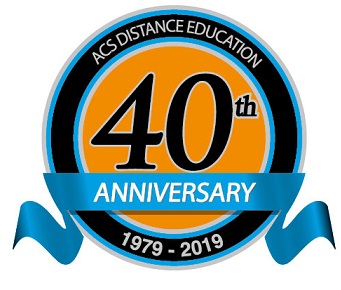 ACS Distance Education is a family owned and operated
business.
ACS Distance Education is a family owned and operated
business.
It launched in Melbourne in 1979, expanded into Queensland in 1991 and established a sister school in England in 2002.
It all started in January 1979, when John Mason a graduate
and casual lecturer at Burnley Horticultural College, was confronted by the
fact that thousands of people were applying to study horticulture courses at
Burnley, but only a tiny proportion had any chance of getting offered a place
in a course. The plain fact was that there simply weren’t sufficient gardening
or horticulture courses being offered anywhere in Melbourne.
Having studied a distance education course himself with
RMIT, John was aware of the potential of correspondence courses. He enlisted
support from the then principal, Brian Pell, and attempts were made to secure
support for Burnley to develop distance education. After six months of no
results, and prompted by a colleague at Council of Adult Education, John sat
down and wrote a 100 hour foundation course in horticulture which he called “Horticulture
I”. This was advertised in the national gardening magazine called Your Garden;
and from one small advertisement, 37 people enrolled.
In those early days, course notes were printed on A4 sheets,
on a second hand stencil printer (Stencils were cut using an old, borrowed
typewriter) (pictured).
Despite the very basic nature of the equipment and materials used;
the courses were backed up with access to the best professional advice right
from those early days. The student and their learning experience was given
absolute top priority then, and nothing has changed in that respect, right up
to today.
In 1982 the school moved from typing courses onto stencils,
to storing them in computers (well before most colleges); and notes began to be
printed on computer printers. By the early 90’s the quality of printed notes
had improved greatly, as had the range and quantity of courses. ACS had moved
into delivering courses in agriculture, health and fitness, writing, business,
environmental management and more. By the mid 90’s the courses were also being
delivered online.
Over the years since then, courses have been revised and
updated over and over, and software systems have been developed in house to
manage student records, deliver courses and much more.
Our Style of Education
We've always focused more on helping people learn, rather than getting them qualified.
Qualifications have some value, but we've always understood that success in business or career will come to those who have better knowledge and skills; irrespective of how well qualified they are. Many people make the same basic mistake in developing their careers, in focusing too much on getting qualifications and not enough on actual learning.
The school started as an independent institution, outside of
mainstream education; offering learning experiences that are different to what
others offer, backed by support services that strive to be better than what
others offer. Our graduates are many and for those who apply themselves to
learning; we can offer learning experiences that really work.
If you are looking for an easy way to gain a qualification;
there are far easier ways to get a qualification. If you want to learn though;
it is going to take effort on your part -wherever you study. Our graduates
consistently tell us they learned more studying here than in courses they
undertook elsewhere.
We understand that having information in your head doesn’t
mean it will remain there a month later; or that you will be able to see the
possibilities for using that information and have an awareness of how to apply
it.
- Some schools put information into you head, test it before
you forget it then give you a qualification.
- We make sure you understand, remember and begin to see ways
of using what you study.
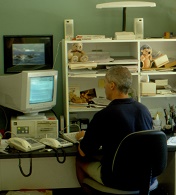
Our Past
ACS has been in involved in many things over the years. The principal (John Mason) and staff have written thousands of magazine articles and more than 200 books. We organised and ran trade shows, provided consultancy services to businesses and have supported professional and trade associations.
The principal still serves as president of the International Accreditation and Recognition Council, and is a board member on the Australian Garden Council.
The school continues to write for publishers in both the UK and Australia on a regular basis.
We have always believed that we need to be involved with the "real world", beyond education, if we are to teach students how to function in that "real world" beyond education.
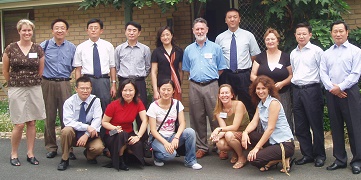
Some of our staff meeting with a delegation from the Peking Correspondence School in 2005
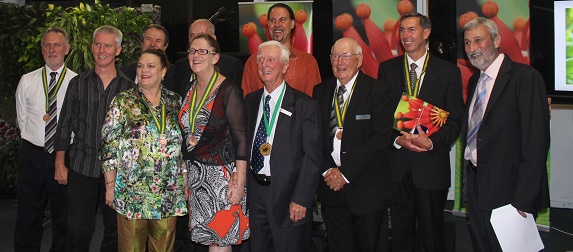
John Mason (left) with colleagues; all fellows of the Australian Institute of Horticulture, in 2013
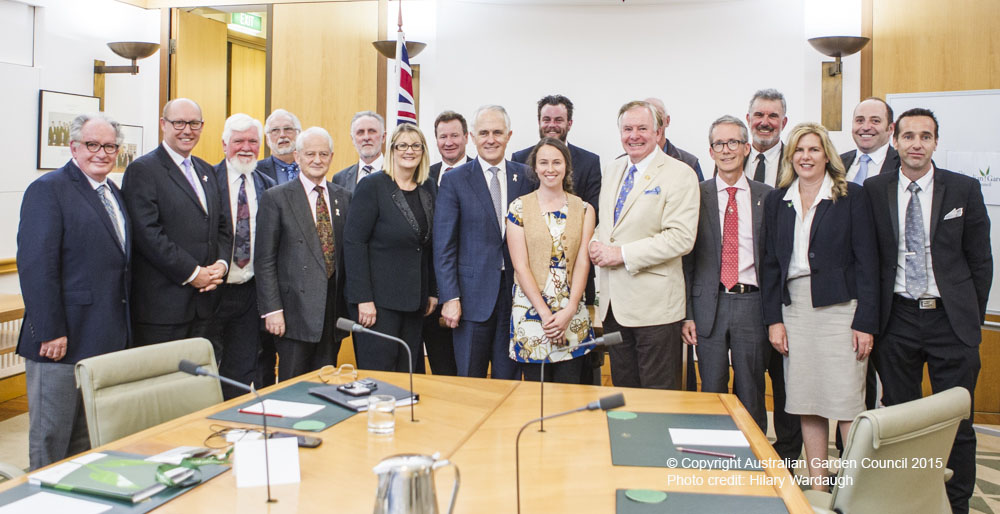
John Mason with fellow members of the Australian Garden Council, meet prime minister Malcolm Turnbull at Parliament House, Canberra, November 2015